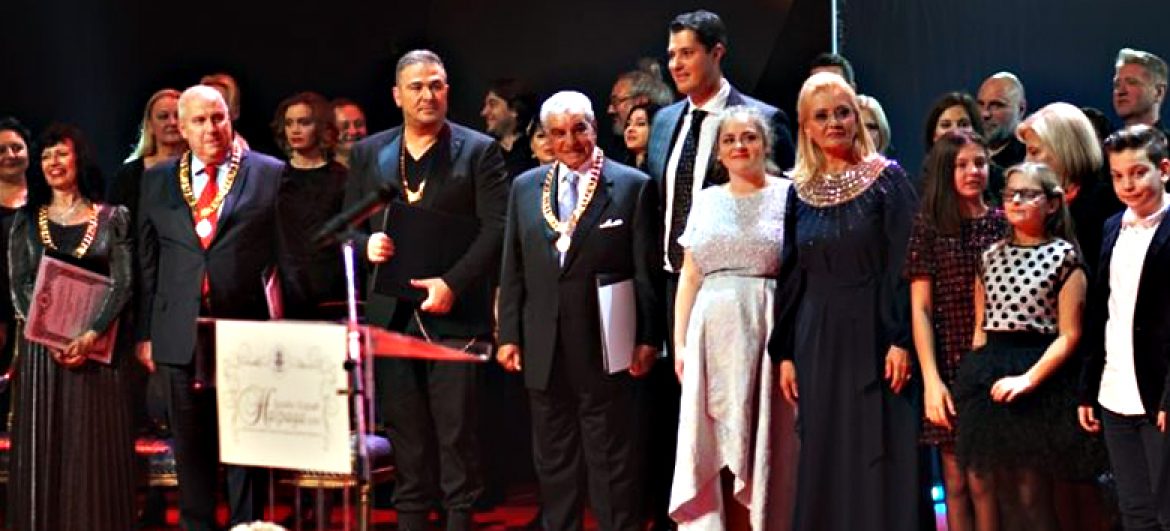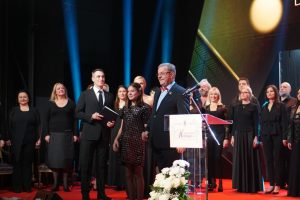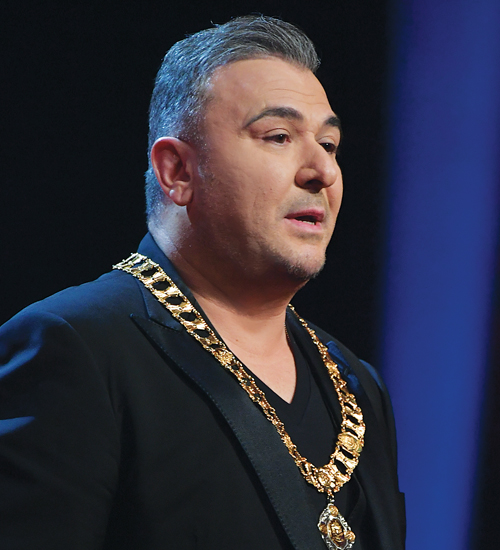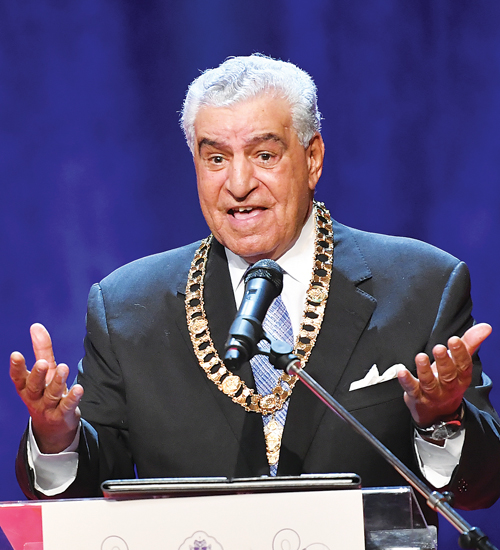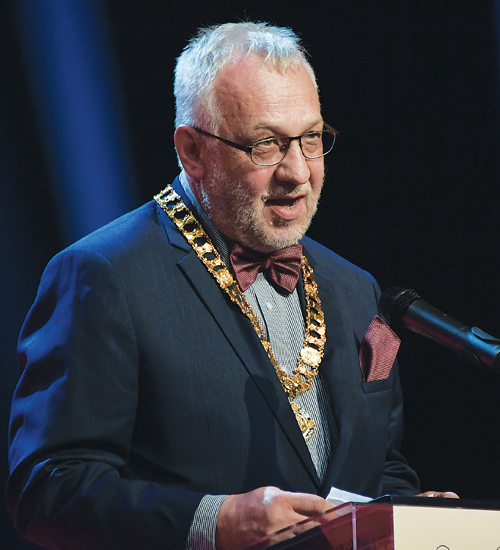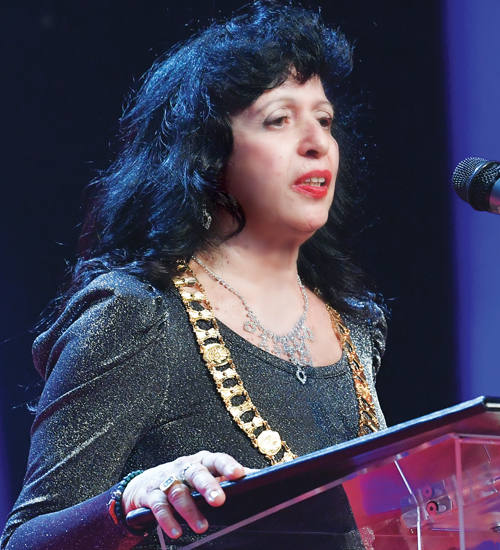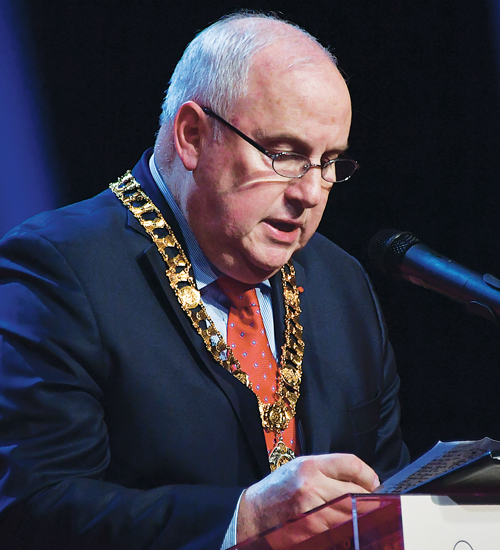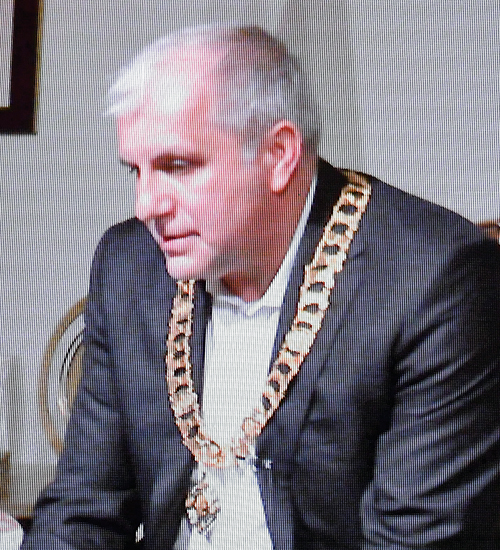DR ZAHI HAWASS
Exploring the world beneath the surface, hidden deep in the labyrinths of the past, Dr. Zahi Hawass turned archeology into the art of reading and interpreting the history of ancient Egypt. He is probably the only man in the world who can answer the questions that inspire and drive the imagination. The excavations and investigations into the fate of Ramses III, the secret of the the Pyramid of Khufu(Cheops), then his search for the tomb of Queen Nefertiti, the long-lost tomb of famous lovers Antony and Cleopatra, sparked global interest around the world. He inspires young archaeologists and gives meaning and importance to their calling.
The mysteries of the past have been surfacing for decades in our understanding of Egypt thanks to the research of Dr. Hawass. Unlike his film counterpart Indiana Jones, everything that determines Dr. Hawass’ work is preceded by impressive knowledge, patience, dedication as well as dreams.
Dr. Zahi Hawass, born May 28, 1947, the world’s foremost Egyptologist, was Secretary General of the Egypt’s Supreme Council of Antiquities and the first Egyptian Minister of Antiquities, Director of Excavations at Giza Pyramid Plateau. He has also worked at archeological sites in the the Nile Delta, the Libyan Desert, the Upper and Lower Egypt.
Dr. Zahi Hawass has gained a special reputation by lecturing around the world, with numerous books he published and documentaries on ancient Egyptian civilization.
“I feel like the ‘king of the pyramids’ because I spent most of my life discovering – the secret door of the pyramids, the Tombs of the Pyramid Builders – that’s why they named me the ‘king of the pyramids’. We have discovered a lot and the discovery of another 70 percent of this treasure awaits us, ”he announced during last year’s visit to Serbia.
In his search for truth he published more than 40 books and 150 works on ancient Egypt. Among the most popular titles are the books ” Secret from the Sand”, ” The Valley of the Golden Mummies”, as well as the world bestseller ” The Legend of Tutankhamun”.
Deeply concerned about the conservation and protection of Egyptian precious heritage, Dr. Hawass returned more than 6,000 stolen and alienated artifacts to Egypt and trained more than 1,000 young archaeologists in museology and excavation techniques. He has also initiated the construction of 22 new museums in Egypt, including the Grand Egyptian Museum and the National Museum of Egyptian Civilization.
The Egyptian Mummy Project, which used modern forensic techniques such as CT and DNA analysis, was also initiated by Dr. Hawass.
Over the course of his long career he has been presented with numerous awards and honors. As a recognizable face of the world’s leading science programs: National Geographic, History Channel, Discovery Channel and BBC, for a special on ancient Egypt, he received an Emmy from the Academy of Television Arts and Sciences in 2006. Earlier, in 1998, the President of Egypt bestowed on him the First Class Award for Arts and Sciences for the restoration of the Sphinx, and he also received the Pride of Egypt Award from members of the foreign press in Egypt. Time magazine chose him as one of the Top 100 Most Influential People in 2006. He was made an officer in the French Order of Arts and Letters, a goodwill ambassador, the Russian Academy of Natural Sciences granted him a Silver Medal and membership in the academy, and in 2008 he received the rank of commander in the Order of Merit of the Italian Republic. In April 2017, Dr Hawass was named as New Ambassador for Cultural Heritage by International Federation for Peace and Sustainable Development (an affiliate organization of the United Nations).
In an exclusive interview with Danica Karić Stojiljković, Dr. Hawass confirms: “Mummies are magical. Their magic brought Hollywood to Egypt. I believe in drama. Drama-free history is unacceptable. Because of my passion about archeology, my words reached the hearts of people all over the world. ”
The greatness of work and the scientific importance of one of the most influential archaeologists of today is recognized in Serbia as well. That is why tonight, the Karic Brothers Award for outstanding achievements in scientific and research work joins all the awards that Dr. Zahi Hawass, an archeologist known for his charisma, has received so far.
Extract from the winner’s speech:
FIND YOUR PASSION
I am very honored tonight to be the recipient of the Award from the Karić Foundation. Today, I really feel a part of the Karić family. Extraordinary people. At the same time, I feel that I am a Serb-Egyptian. I grew up in a small Egyptian village and the only foreign city I heard of as a child was Belgrade. I also knew about Cairo, Tito and Nasser. Freedom and peace were the only words that I heard and remembered. As I always say – it’s built into my personality. Also, I am honored to be the first Arab and the first person from Africa to receive this great award. I had an interview today with Dana, the lady who asked me if I lived in today’s world or in the time of the pharaohs. I told her that I live in the time of the pharaohs, and I really do feel that way. So I do not feel surrounded by the 21st century but as if I’d gone five thousand years back into the past. You see, whenever I make a discovery, I always say that it does not belong only to Egypt, but to people all over the world. Egyptian pharaonic civilization actually belongs to all of you. And that is why when I discover the tombs of the pyramid builders it tells the world that the pyramids were built by the Egyptians and not by some slaves. When I found the Valley of the Golden Mummies, I felt that each of those mummies were me or inside me. When I found the mummy of Queen Hatshepsut or researched King Tutankhamun’s tomb, all those discoveries came from my heart. And before I say why I love archeology so much and live in the age of the pharaohs, I want to tell you that Egypt is safe. We would like you to come to Egypt and visit us, because it is just a few hours away from you. Can you imagine standing in front of the Sphinx at six in the morning? When I took US President Obama there, he told me that he never thought he would be alone with me in front of the Sphinx, that he would go to Luxor, the Valley of the Kings, Abu Simbel. It’s all so magical and that magic happened a long time ago … I invite you to come, because I clearly feel that I fell in love with Serbia.
Finally, I want to tell you why when I talk about pharaohs, my words find a way to people’s hearts, which is why I received the ”Karić Brothers ” Award. When I was fifteen, I dreamed of becoming an attorney. I enrolled at the Faculty of Law, bought books, started studying, and then I said to myself: no way, I’ll never be a lawyer, I hate law … I returned the books and enrolled at the Faculty of Archeology, to study art. I wasn’t a very good student, had some bad grades, but I graduated from college. I was wondering what to do next. That’s when I started working for the government and I found myself in the Department of Antiquities. However, I told myself that there was no way for me to stay there, I wanted to go into diplomacy, to become an ambassador. I didn’t succeed in that and returned to archeology in tears. Then they made me go digging in the desert, I was very sad that I had to leave Cairo. But one day one of the archaeologists found an undiscovered tomb and called me down to see it. I went inside and sat in front of the statue that was in the very center of the tomb. I started cleaning it and it was a really inexplicable feeling. I told myself that I had found my love – It was archeology. And that’s why when I travel the world and meet young people, I tell them only one word – passion. If there is a passion in you, passion for anything, even if it’s something very small, you will make something big out of it. Just find your passion.




